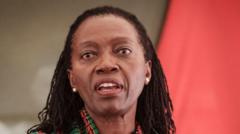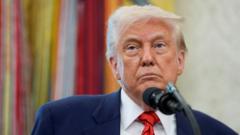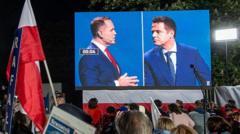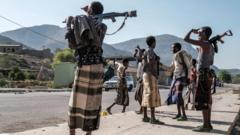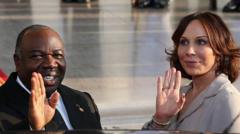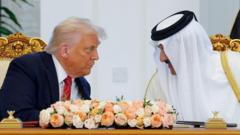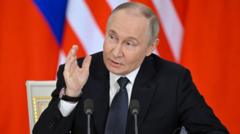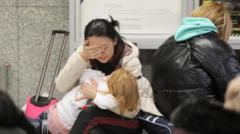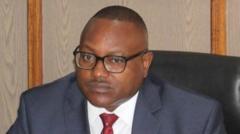In a pivotal moment for Romania’s political landscape, far-right candidate George Simion is gaining momentum in the presidential elections following a controversial annulled election last year. As voter frustration with established political parties grows, Simion's nationalist rhetoric poses a significant challenge to Romania's European integration.
Romania's Presidential Elections: A Tipping Point Towards Nationalism?

Romania's Presidential Elections: A Tipping Point Towards Nationalism?
With the rise of far-right candidate George Simion, Romania's upcoming presidential elections could shift the nation away from European integration.
In a tense pre-election climate, Romania's political future hangs precariously. After last year's annulled presidential election sparked outrage over Russian interference, the nation now finds itself at the crossroads of a potential nationalist shift as it heads towards new elections. Far-right candidate George Simion has surged in popularity, winning the first round by a significant margin against current Bucharest mayor Nicusor Dan, a pro-European Union candidate.
The elections are reflective of a deeper discontent among the electorate, with many Romanians expressing a profound distrust of traditional political parties. Simion's nationalist and Euro-sceptic platform has resonated strongly with voters disillusioned by decades of perceived corruption and stagnation. “This is a vote against the status quo,” argues analyst Felicia Alexandru, highlighting the growing sentiment for change.
In Teleorman County, among Romania's poorest regions, many voters are throwing their support behind Simion. His message of prioritizing Romanian interests has sparked enthusiasm, as he declares that the future should be determined solely by Romanians. Conversely, Nicusor Dan is campaigning for Romania's continued collaboration with European partners, warning that choosing Simion could lead to isolation.
Voting patterns reveal a significant cultural divide: while Simion gains traction in traditionally social-democrat territories, Dan advocates for stability and European integration as a means to navigate economic challenges. Concerns loom over how a potential Simion victory could impact Romania's standing within NATO and the European Union.
With media reports mentioning the increasingly personal nature of Simion's campaign rhetoric—framing his adversaries in derogatory terms—public sentiment reflects both hope and anxiety. Voters in industrial sectors are particularly wary of how uncertain political direction might affect international partnerships and investment.
As voters prepare for the second round, grassroots initiatives aim to sway public opinion towards Dan’s pro-EU stance, emphasizing continuity and reliability over the promise of radical change that Simion offers. Meanwhile, Simion’s supporters view him as a necessary disruptor, a sentiment echoed by many who yearn for a profound overhaul of the political system.
The stakes are undoubtedly high, as analysts predict potential chaos should Simion ascend to power, especially if his alignment with nationalist figures like Calin Georgescu comes to fruition. With diverging ideals and vying visions for the country's future, Romania's upcoming election results could indeed determine the trajectory of the nation—whether towards integration with Europe or retreat into isolationism.

